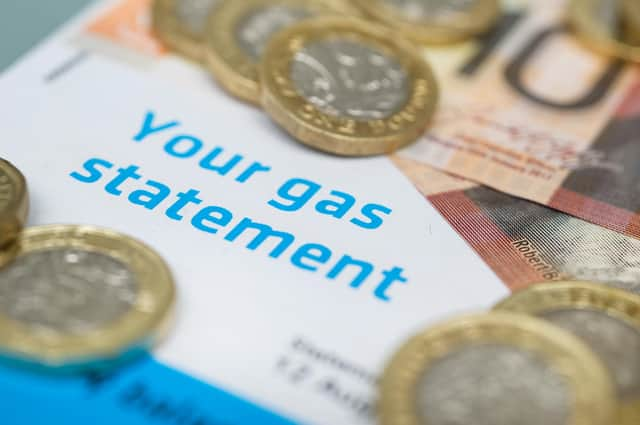Readers' letters: Labour are failing on Brexit and energy


James Withers, head of Scottish Food and Drink, said many firms have “given up” on trading with EU companies because of the “tsunami” of red tape and said the worst is to come.
As for replacing the annual £2.1 billion Scotland lost from EU structural funds, a Westminster cross-party report said the UK Shared Prosperity Fund will fall short by 40 per cent.
Advertisement
Hide AdAdvertisement
Hide AdEnergy policy is reserved. Westminster eliminated oil taxes in 2015, losing the Treasury £13.6 billion and obscenely enriching Big Oil. By contrast, in 2020 Shell paid Norway $1.8 billion in taxes. The Norwegian government, which owns Statoil, is covering 80 per cent of the energy price increases for Norwegians.
Energy privatisation based on the lie that the private sector delivers public goods and services more efficiently than thestate has failed abysmally.Consumers lose while shareholders and corpor-ations make out like bandits.
Scottish Labour had 13 years to re-establish a national energy company and Starmer refused to bring it into state control.
An independent Scotland can re-join the EU, create a public energy company and produce all of its electricity from cheaper and more sustainable renewables. Let’s get on with it.
Leah Gunn Barrett, Edinburgh.
History shows folly of privatisation
Advertisement
Hide AdAdvertisement
Hide AdWhy on earth did we privatise energy companies? There might still be a crisis today but at least the government could control the impact if they were state owned.
On housing, I firmly believe the crisis is a direct result of council house sales. Fortunately this has been recognised in Scotland. If the government wanted to encourage home ownership they should have given a grant to first time buyers of properties up to a certain value. Now large numbers of rented homes often at exorbitant rates, and far too many holiday homes mean people have difficulty getting any home at all.In England privatisation of water companies has taken place with any debt written off before the sale. Result being the reported mess and contamination with sewage of English rivers as the pursuit of profit and shareholders' interests takes precedence.On oil: , why has Norway managed to secure about 10 times the amount of revenue per barrel compared with the UK? The answer is our obsession with privatisation and no state participation.Brexit, meanwhile, is an extraordinary example of a government claiming to take back control when its track record in power has been one of selling off ownership, control and abdication of responsibility in all utilities that should be benefitting the people.
It is little wonder there is a strong Independence movement in Scotland.
Peter D Cheyne, Invergordon.
Fantasy projects
The latest in a long line of SNP fantasy projects is a new ‘EU Hub’, planned to open in spring in Brussels. This can be added to the mounting millions of our taxes expended on pretend embassies.
Advertisement
Hide AdAdvertisement
Hide AdFar from ‘’enhancing Scottish culture,’’ this will merely drain more resources that could have been spent on a million infinitely more worthwhile projects.
Meanwhile, our roads remain in a third world state, drug deaths remain the highest in Europe and our councils struggle to supply basic needs.
Alexander McKay, Edinburgh.
Write to the Edinburgh Evening News
We welcome your thoughts. Write to [email protected] including name, address and phone number – we won't print full details. Keep letters under 300 words, with no attachments. If referring to an article, include date, page number and heading.
A message from the Editor
Thank you for reading this article. We're more reliant on your support than ever as the shift in consumer habits brought about by coronavirus impacts our advertisers. If you haven't already, please consider supporting our trusted, fact-checked journalism by taking out a digital subscription. Click on this link for more information.
Comment Guidelines
National World encourages reader discussion on our stories. User feedback, insights and back-and-forth exchanges add a rich layer of context to reporting. Please review our Community Guidelines before commenting.